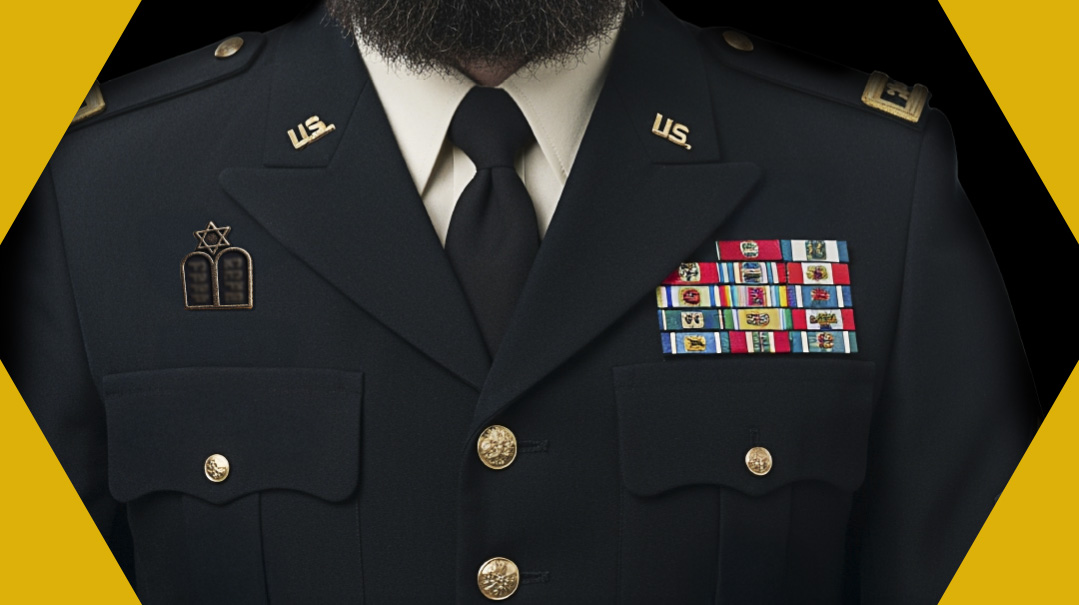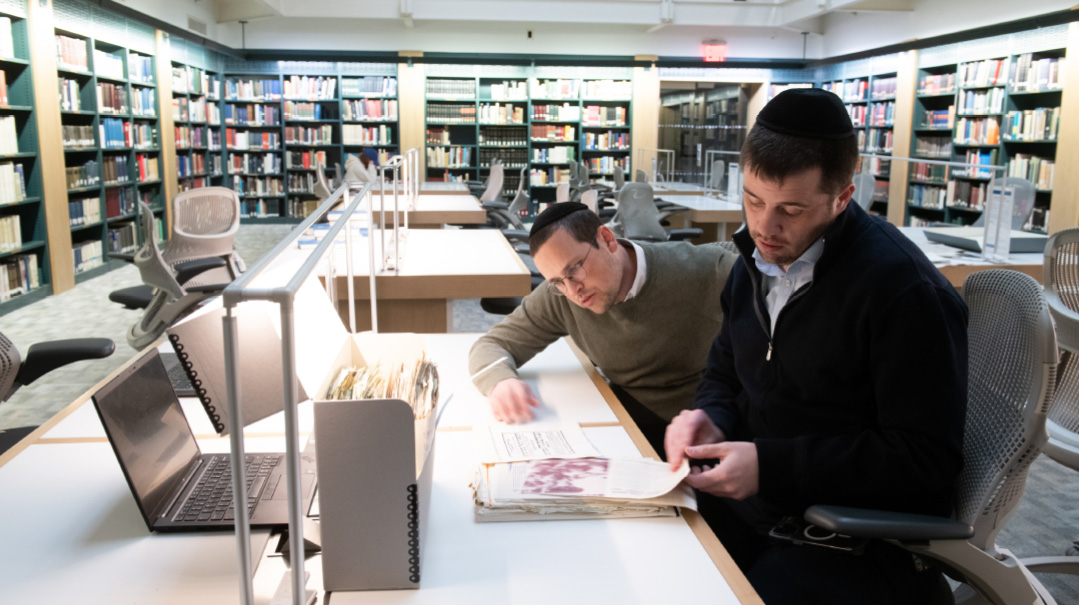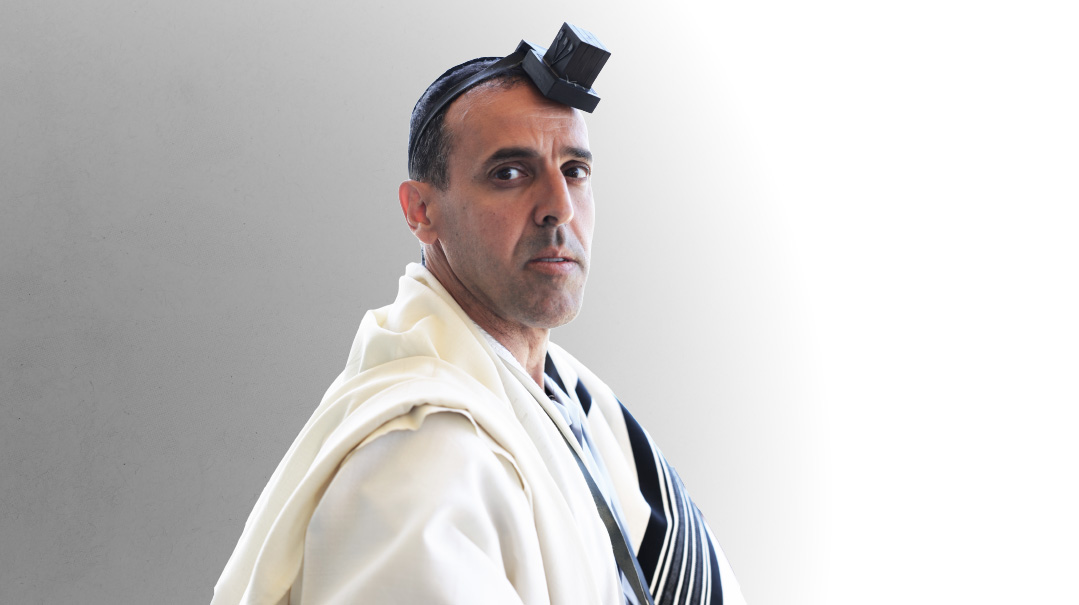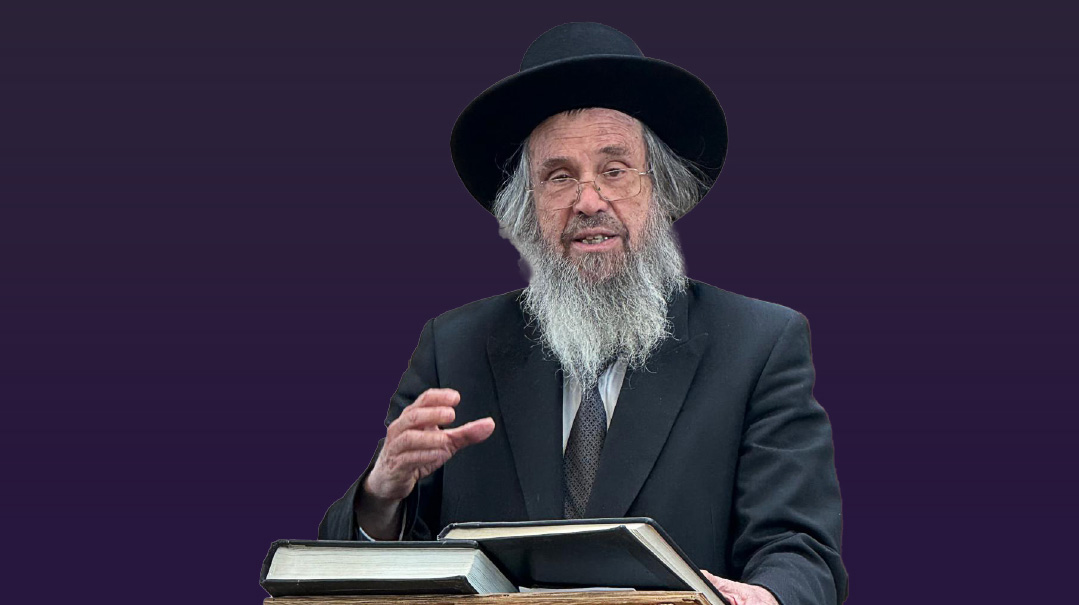Locked inside Paradise

Three months in, have the fragile relationships of corona newlyweds survived the lockdown?
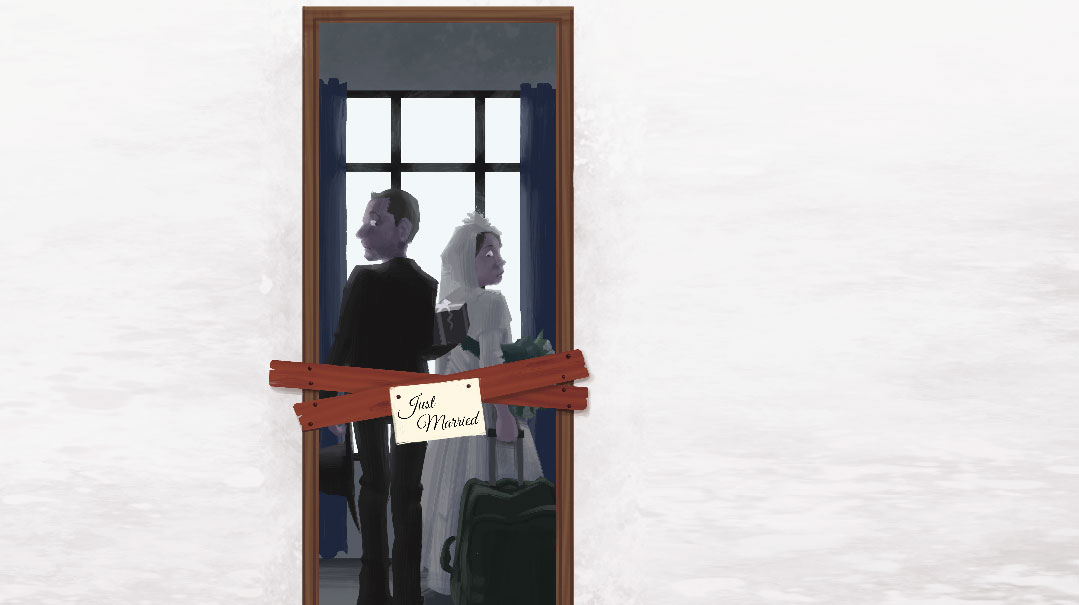
When COVID-19 hit and locked down civilization inside closed quarters, it was widely predicted to spell disaster for marriage. “For every marriage that was on the brink, this is what’s going to push people over,” Jacqueline Newman, a New York divorce lawyer and author of The New Rules of Divorce, told Fox News at the beginning of April, in the early days of quarantine. “It’s really a make-it or break-it situation,” she predicted. “Only the strongest relationships will survive.”
With such dire predictions, it’s no wonder that the frum world braced for crisis as well. The picture looked especially gloomy for newlyweds, many of whom barely knew each other when they were forced into 24/7 lockdown in often cramped quarters — suffering through the stresses of the pandemic without the history of a solid relationship behind them for support. For COVID-19 newlyweds — those who married before or during days of quarantine and closures — the overturned wedding plans, illness or death in the family, 24/7 isolation, and financial uncertainties are surely challenges they never dreamed they’d face when they made the l’chayim. And unlike couples who’ve already spent many years building and growing together, these couples haven’t yet had a chance to develop resilience together and don’t yet have a shared reservoir of mutual struggle and growth. All these were clear warning signs for danger ahead.
And in fact, as the lockdown continued, many of us heard stories of newly married chassanim and kallahs returning to their parents’ homes “until things become normal,” of rabbanim encouraging couples to postpone their weddings, of batei din being instructed not to accept gittin cases for the next few months, of helplines and therapy services flooded with young spouses who feel their lives are falling apart. But as the lockdown lifts and the sense of panic dissipates, a different story is emerging.
“As coronavirus started, I was getting comments like, ‘your office is probably swamped with calls from newly married couples in crisis,’ but that really wasn’t happening,” says Duvie Kessner, director of operations for Relief Resources, an international mental health referral service. “Although we’re certainly dealing with marriage-related issues due to the stressed weddings and lockdowns, the numbers don’t reflect crisis proportions or cause of panic. But one of the major communal activists called up our organization and told us that there was going to be a flood of couples seeking divorce due to the lockdown. So I immediately spoke to two batei din. One told me it’s not true, that they haven’t had any ‘coronavirus’ cases, only ‘run-of-the-mill’ gittin. Another beis din told me that they did decide to hold off gittin, not because they’re getting more requests, but because in general people who are going through tough times aren’t in the best frame of mind.”
One person who categorically denies the reports that the batei din are inundated with petitions for “coronavirus” gittin is Dayan Yaakov Siemiatycki of Lakewood’s Beis Havaad. “It’s absolutely not true that young couples are klapping on beis din’s door,” says Dayan Siemiatycki, “and it’s also not true, at least for the Beis Havaad, that the beis din agreed not to take any new cases at this time.” What is true, he says, is that during the first week of quarantine, some concerned askanim projected a crisis situation and pleaded with the batei din to close their doors to gittin until the situation settles.
“I can’t speak for every beis din, but here, it’s unfortunately business as usual,” says Dayan Siemiatycki, who served for many years on Rav Yosef Fleischman’s Nesivos Chaim Beis Din in Jerusalem before coming to Lakewood four years ago. “We’re doing gittin all the time, but these are cases that have been going on for months. We haven’t had a single case of a newlywed couple in ‘coronavirus crisis.’ ” He says his beis din only had one pandemic-induced case so far, of a couple married 12 years, where the husband had longstanding emotional issues.
In five or six months, Dayan Siemiatycki projects, they may be seeing the fallout from the rough beginnings where the issues couldn’t be fixed, but he believes those are issues that would have emerged in any case —the pandemic just accelerated the process.
Regarding the reports of rabbanim advising couples to return to their respective homes, the Dayan says that from his 20-plus years of experience with gittin, it doesn’t bode well. “I don’t believe any rav is going to go on record with this advice, but even if they are saying it privately, I don’t believe it’s realistic. Because once a couple separates, it’s very hard to bring them back. Some people might advocate this as a way to preserve future shalom bayis, but from my experience, a couple that separates doesn’t generally get back together.”
Furthermore, he believes, it’s the rumors themselves that are causing much of the anxiety among corona-era newlyweds. “When the askanim called us at the beginning and told us there would be a crisis, it was really conjecture. Yet after all the talk that every couple is hearing, that they’ll definitely face crisis-proportion issues, that they’re surely in trouble but not to worry because there’s help available, when they do face a challenge, they’ll think, ‘oh, this must be the crisis they were talking about — maybe we should head for beis din.’ ”
That’s not to say coronavirus newlyweds haven’t faced major challenges.
“Many of them rushed their weddings, and then what happened? A 24/7 lockdown, stuck in a small apartment alone — no one was going to work, no one was going to minyan or to kollel. It was a lot of imposed togetherness for two people just getting to really know each other, and adding the anxiety of illness, death, and financial instability to the mix severely challenged their expectations of newlywed bliss,” says Mrs. B., a sought-after kallah teacher in the Tristate area who agreed to be interviewed on condition of anonymity.
“You know what they say: 90% of couples admit that at some point during shanah rishonah they questioned whether they made the right decision, and the other 10% are liars — and that’s in normal times. Now, with the coronavirus regulations, I’ve had many kallahs call me in distress, and a lot of the issues involve deep disappointment and dashed expectations in a very short, concentrated period of time. Let’s say he had a reputation as a real masmid, she heard amazing things about him, but how can he keep his amazing schedule with just a phone chavrusa? She’s asking, distraught, ‘Why isn’t he learning all day? Why is he so distracted? Why is he getting up later than he should? Why does he keep coming into the kitchen to see if I’m cooking something?’ ”
Many of these couples didn’t have sheva brachos, which, says Mrs. B., means they missed out on a very positive piece. “It’s very important to excite a chassan and kallah about how amazing their spouse is, sending them off into their marriage with a feeling of ‘Wow, look what I have!’ So when they see their spouse is just a regular imperfect human, when she doesn’t have the rebbi’s words of praise of how amazing he is ringing in her ears, and she doesn’t think he’s so amazing anymore, coupled with the fact that she misses her family who she might not be able to see, she tells herself, ‘What was I thinking!?’ and very quickly forgets all the excitement of the dating and engagement period.”
The newness of the relationship and the forced 24/7 closeness, says Mrs. B., is a breeding ground for both emotional and halachic challenges. If the newlyweds, still adjusting to the normal ebb and flow of their relationship, didn’t meet the challenge in the way they’d hoped, the failure can lead to strong feelings of guilt, disgust, and resentment — feelings that linger even after society has begun to reopen and life is slowly returning to its normal rhythm.
“There is a lot of residual fallout that many couples will still have to work out,” she says. “Expectations breed disappointment, which is a stress on the marriage, and resentments linger even after the craziness is pretty much behind us. Some of these couples might have to restart in order to recapture the feelings of trust and kavod.”
Another significant issue is that of shattered financial expectations. “One of my kallahs was promised full support by her father. Then he got corona, and at this point he’s been in a coma on a ventilator for two months. The chassan’s parents have no money, and now this couple doesn’t even know how they’ll pay rent. Today, as parents have lost jobs and income, many young couples have to deal with a financial burden they never expected.”
This is the downside, she says, “but there are a lot of very beautiful marriages out there, and I believe most couples will totally pull through and be happy. We’ve raised beautiful children and they have deep reserves of strength and emunah. When I hear things like, ‘But it wasn’t supposed to be like this!’ I tell them, ‘Forget supposed for now, step back, and just see the roses and not the thorns, and thank Hashem that you were zocheh to get married. There’s nothing wrong with your marriage, nothing wrong with your spouse. You started off differently than normal couples, but your marriage can be stronger because you’re going to pull this off. Just do whatever it takes to stay sane, and lower your expectations of yourself and each other.’”
When the togetherness got to be too much, Mrs. B.’s own happily-married newlywed daughter and son-in-law did what so many other couples have done: They picked up and moved into their parents’ guestroom.
“They are, baruch Hashem, a happy couple, but facing lockdown after being married just six weeks, it was just too much togetherness, with no end in sight,” she reflects. “Rosh Chodesh Nissan came, and they decided to join the family. Almost all of her newly-married friends did the same thing. Not that it was an optimal situation, but after consulting with rabbanim, we agreed that for a newlywed couple, it was a healthier alternative to be around people than to remain isolated indefinitely.”
Sima G., who was married for five months before the quarantine, feels the same way.
“We’d been living in Eretz Yisrael since our wedding,” she relates, “and after scrambling to get tickets back to the US for Pesach, we’ve been living in my parents’ basement ever since. Obviously, it’s not ideal, but I’m happy we didn’t have to go through lockdown just the two of us in our little apartment for weeks on end.”
While Sima wasn’t a coronavirus bride, she is a newlywed who’d never previously spent so much time with her new husband. What did all that closeness do?
“It’s a very individual question,” she says. “For one thing, I had never seen my husband so much — in Eretz Yisrael he was learning in Brisk and I was out of the house working different jobs. Now I’m seeing sides of him that I never saw before — this is the real person I married!”
Then there’s the lack of structure and schedule. “It’s actually been pretty nice,” Sima says. “No pressure of running out in the morning, no pressure of having to have supper ready the minute he walks in the door. Now, whatever is demanded of the moment is what we do. For sure if you’re seeing things you’re not happy with it’s very hard, but I try to keep my focus on the good things — and having my siblings upstairs is a plus when I need a break.”
Not everyone has the luxury of a family haven, though. Although Penina D. and her new husband live a few blocks from her parents in Jerusalem, both sets of parents are health-compromised and weren’t allowing in visitors during the lockdown. “I was sure she’d crack up,” says Penina’s mother. “They didn’t leave their tiny rental for weeks, and made Pesach on their own. Shabbos, Leil HaSeder, Shabbos Chol Hamoed, Shevii shel Pesach, another Shabbos and another and another… I called her every day to check her tolerance temperature. I thought she’d be an emotional wreck and that my son-in-law would be going out of his mind. But he was strict about a phone chavrusa every day, they tried to build some kind of schedule and each one charted out their little corner, and somehow they survived, and even thrived. She even told me, now that she’s gone back to work, ‘Mommy, I sort of miss the days of coronavirus when there was no pressure.’ ”
Wedding Bells
It’s common to wax rhapsodic about the beauty and meaning of those rushed coronavirus weddings with their impromptu venues and tiny guest lists. But for all the authenticity of these pared-down simchahs, it wasn’t simple for the kallahs, whose dream day was sometimes anything but. One newlywed reports how she could barely move at her own wedding, because her heels kept getting stuck in the mud caking the backyard. Another young woman who got married in a neighbor’s basement with 20 people in attendance says that although they went all out to make it special and she’s happily married, “I don’t believe I’ll ever be able to go to a regular chasunah without feeling a pang of jealousy that I was robbed of a normal wedding.”
Yet when Shani P. thinks of her March 17th wedding, the first day of the New York lockdown, she’s actually overcome with a sense of relief.
“At the time, I felt like I had the last normal chasunah in the Jewish world,” she says.
The day before the scheduled wedding date, when her family realized the closures and quarantine were for real, they scrambled for options — making the wedding during the day, changing the venue from upstate New York to the city, finding a hall or shul that would still accommodate them. While her friends were moving their venues to yards and living rooms, in the end her family found a hall with a basement that was willing to shut off all the lights and hold the wedding downstairs, so that when the inspectors came, it looked like the hall was closed.
“I was disappointed that the chuppah was in a basement instead of under the stars, as is our minhag, and I don’t have beautiful outdoor kallah pictures, but I’m also grateful that we didn’t push off the wedding,” she says. “Sure, there were challenges — the first one being that I had COVID-19 during the week of sheva brachos — but I think I’m pretty indicative of my newlywed friends in that although we’ve all faced our share of anxiety and stress over the last three months, we’re okay. If you’re looking for drama and crisis, I’m not the address.”
Shani, 20, says both she and her new husband are naturally busy people, and the biggest challenge has been not having a schedule and trying to find things to do. “Well, the boardwalk in Brooklyn was open the whole time, so we took a lot of walks,” she says.
Both of their families had been exposed to the virus, so they weren’t isolating — a blessing for Shani and her husband, who were able to spend Yom Tov with both sets of parents. But they had tickets to move to Israel right after Pesach, and a very temporary apartment with just enough supplies to tide them over for the month. Everything else was packed up.
“I was very unsettled and stressed about how we’d get to Israel, but slowly I’ve learned to accept reality that we’re still here, and I’ve learned to lower my expectations and take one day at a time,” says Shani. “These days, my husband is learning with his father and brothers, and we’re waiting for everything to open up so we can go to Eretz Yisrael. You know, it usually takes a few years to figure out your spouse, but within three weeks I felt like I knew everything. We’re good. And looking back now that things have started to normalize, I would say that this was a strengthening time.
“The thing is that while I’m okay, other people have heard that all of us ‘coronavirus couples’ are in crisis. I meet people and they’re really cautious — like I’m chas v’shalom on the verge of divorce. ‘How ARE you?’ they ask meaningfully, expecting that I’m about to fall apart.”
“While I’m hearing a lot about this ‘coronavirus crisis,’ from what I’ve seen among those who got married in COVID-19, what I am seeing is a certain sense of resilience,” says Rabbi Eliezer Zwickler LCSW, rav of Congregation AABJD in West Orange, NJ, and therapist in private practice who specializes in couples work using EFT and IFS modalities. “But at the same time, for many of them there’s a sense of disappointment, beginning with not having a normative wedding, so stress is immediately introduced into the relationship. And then, especially over Yom Tov, there was the added stress of the push and pull of the parents — which parents to go to, or one side uncomfortable with them coming and the tension that has ensued, when this new couple is just trying to navigate basic rules. And the biggest stressor, or course, was not being able to experience life together within the framework of a normal regimen. But we have to remember that there will always be couples who are in crisis in marriage, who don’t know how to be married or have issues or blockages, and they will always need assistance. So the stress of COVID-19 either brought out quick resilience, or brought on issues that would eventually be exposed in the marriage in any case.”
Rabbi Zwickler says he’s seen quite a bit of cabin fever, especially among newlywed couples cooped up alone for weeks, but he hasn’t had anyone running to beis din for a get over it. “What I have found,” he says, “is that this is probably one of the greatest social stresses we’ve experienced in our married life. And what does it do to us? Because being under lockdown and all the other things coming along with COVID-19 exposes our vulnerabilities and stresses, we need to find a healthy way to be vulnerable and look toward our spouses as a strength and safety zone and not as someone to blame things on or fix things. We have to be easy with each other.”
Now that lockdown is over, life is reopening, and the worst is behind us, we can be mochel ourselves and each other, says Rabbi Zwickler. “If things went well, we can look at each other and say, ‘If we got through this together, we’ll be able to get through anything.’ And if it was a particularly difficult tekufah, we can look back and say, ‘Hey, what we went through was not normal. It’s not normal to be home alone for 12 weeks, or have the kind of wedding we did, or not be able to go to our parents.’
“But being mochel, forgiving, doesn’t mean to forget the pain that was caused. That pain still needs to be processed — and if it can’t be done between them, it can be done with a professional. Still, marriages can become strengthened, and thrive.”
One of the most important things to keep in mind, he feels, is just how extraordinary this period was. “I don’t think couples should look at this period and make long-term decisions from it. I would say to the couples who have gone through it and struggled, ‘Look, you don’t have to give up. The worst of it is over, now we have to deal with what happened, but maybe we can grow and learn from it instead of staying in our resentments.’ ”
Some of those resentments are every newlywed’s unfulfilled expectations, but which become apparent very quickly living in such closed quarters. They told her he was the best boy in the yeshivah, literally the next gadol hador, and she sees that he can’t go 15 minutes without taking a break from learning and rummaging through the fridge. If he were sitting in kollel, how would she ever know? And they told him she was spiritual, but it takes her exactly ten seconds to bentsh licht when his mother spends at least ten minutes crying over the candles, and then she makes a face when he thinks he’s singing his way to marital bliss over a three-hour zemiros repertoire at the Shabbos table. So how can these newlyweds find a healthy way to grieve the loss of something they thought they had, and prevent the typical unhealthy reactions of blowing up, acting out, giving the cold shoulder, or the silent treatment?
“The healthy reaction,” says Rabbi Zwickler, “is to make a chesbon hanefesh, to sit down and say, okay, how can I have a real conversation with my spouse about my expectations versus what I see now? And it could be that the husband will say, ‘What? That’s what they told you about me?! Wow, I feel so bad for you, but listen, I’m just a regular guy.’ Or she might say, ‘Look, I’m frum, I say Tehillim every day and I don’t mind a Kol Mekadesh, but what’s going on here?’
“Part of getting to know each other is the ability to create trust and vulnerability so that when we confront our disappointments, we can talk about them, comprehend the other person, and come to some understanding from a place of trust and not from anger and resentment: Okay, maybe my husband isn’t the gadol hador, but he’s so kind and considerate. Maybe my wife doesn’t cry at licht bentshing, but look what a baalas chesed she is.”
While some rabbanim and rebbes in various kehillos have advised couples to postpone weddings until these newlywed challenges stabilized, several couples in Rabbi Zwickler’s kehillah got married with backyard weddings. “It was the kids who said, ‘No, we’re fine, we want to go through with it on time.’
“You know, if we were having this conversation before COVID-19, I would tell you that in the frum community, people are really having problems with their marriages. COVID-19 might have exacerbated the situation for some couples, and for others, actually helped bring them together and strengthen them. But neither in my therapy practice nor in my rabbanus have I seen an escalation in the number of requests for help specifically because of COVID-19. You’d think otherwise, but Yidden have a lot of untapped resilience and kochos hanefesh.”
It’s what marriage counselor Reb Meir Shtub calls the “corona trigger” — how the lockdown brought out the extreme in every relationship, put all the issues under a magnifying glass. “I’m busier now than ever – I’m seeing couples every night until 1 a.m.,” says Reb Meir, a resident of the Jerusalem suburb of Beitar who runs a cheder by day and counsels couples at night, a position he took up at the behest of the Amshinover Rebbe. But, he clarifies, none of those couples are corona newlyweds; furthermore they all had underlying issues that corona exacerbated. “If not for corona, many of these couples would still be grinding it out, surviving, leaving the house, ignoring the issues, pushing through another day.”
The real story, he says, is about the couples who married before corona — they were the ones having the hardest time, functioning well together until the pressures of the closures caused a regression. “Suddenly they were with their spouse all day long, there was no parnassah but there were mortgage payments and new expenses, and all the personality irritants they didn’t like but basically ignored before were suddenly in their face.”
But it’s clear, he says, that couples who married during corona had a problem: “You take a bochur out of the yeshivah and put him together with this girl 24/7. That for sure makes for special challenges. I’ve had some parents call me, asking for advice and ideas for how to ease the pressure on their newly married children, but so far I haven’t had to put out any fires.”
Get Through, Not Out Rabbi Yechiel Wahl, an official madrich chassanim for BMG in Lakewood, is another person in the loop who hasn’t experienced crisis proportions. “People are telling me a lot of stories — like in some communities all the chassanim and kallahs are going back home — but it sounded pretty extreme to me. Last week I was speaking with a well-known rav and posek, and I asked him, am I missing something here? Because I don’t see all this crisis everyone is talking about. Maybe I just didn’t get those chassanim? He said, ‘I haven’t gotten them either.’
“It’s true that there were a few couples who were challenged from the outset, those struggling with depression or other issues beforehand, and this pushed them under. For most couples though, while the lockdown has been stressful, it hasn’t been a deal breaker. They’re doing okay — I haven’t seen a massive outbreak of disaster.”
Rabbi Wahl has helped many chassanim navigate the “new normal” of coronavirus with issues ranging from personal halachic sh’eilos to dealing with space constraints and claustrophobia. “Sure, they’re facing challenges, but many of those challenges are technical. They aren’t collapsing, they just want to know how to do things the right way,” he says. “There were hundreds of couples making Pesach for the first time, with hundreds and hundreds of sh’eilos — for example, everyone had new keilim, but the mikvaos were closed. And when the couples pulled through, they were real heroes.”
And all those questions came on the heels of emunah and bitachon that they’d already tapped into. “Because,” says Rabbi Wahl, “many chassanim didn’t even know where they’d be getting married until the last minute — a backyard? Whose? — and they were really great about it. I’m really proud of these boys, how they rose to the challenge.”
Are their marriages stronger now? “I hope so and I think so, but it’s still too early to see what the real fallout is. There have been a lot of stressors and it’s not so easy to put everything behind. But the chassanim who came to me, I wouldn’t say they were in crisis, I would say they were challenged. They wanted to figure out how to make it work better — practical tips and advice on how to get through, not how to get out.”
Duvie Kessner of Relief is no stranger to crisis. He deals with pain all day long and his staff has been instructed to move beyond routine and return all calls as quickly as possible. “I know that anyone calling really needs help. It’s not about, ‘Hi, I want to talk about my past.’ It’s about, ‘I’m really not doing well and I need to see someone desperately.’ ”
Relief, Kessner says, fields many calls from chassan and kallah teachers, as the organization is often the first point of contact when there’s an issue. Yet regarding both the unarguable challenges of coronavirus newlyweds and others who’ve gone through an unimaginable three months, he says, “My honest feeling? All of Klal Yisrael stood up to the challenge and displayed incredible strength. So many people, even those chronic cases we have — the ones I thought would never survive — found the wherewithal to weather this. It bothers me that people are putting out there that mental issues are skyrocketing, that our community is falling apart, even though that might be true in the secular world. On Yom Tov people asked me if I was carrying my phone. It’s true that there were clinicians making themselves more available, even on Shabbos and Yom Tov, due the concerns and the crisis, and there were those that needed it and benefited from it. Because we’re often the first point of contact for this kind of help, people just assumed everyone was falling apart emotionally, that everyone is in crisis and no one can handle it. I told them, ‘I want you to know that we discovered something: People can handle things! Hashem gave us kochos.’
“I’m not being cynical about mental health,” he qualifies. “I deal with it every day. I know what depression looks like, I know what anxiety looks like, I know what bipolar looks like, and I’m not at all minimizing those challenges. And without mitigating the excruciating pain of so much loss on so many fronts, Rachmana litzlan, Klal Yisrael has risen to the challenge, tapping into the eternal tools of emunah and bitachon — more Tehillim, more davening, more avenues for latching onto those tools. Coronavirus taught us about our emotional abilities and capabilities.” —
WHY ONLY IN A PANDEMIC?
LISA TWERSKI, LCSW, is a psychotherapist in private practice in Brooklyn, NY, a member of Nefesh International board of directors, the author of I’m So Confused, Am I Being Abused? Guidance for the Orthodox Jewish Spouse, and co-founder of Kesher Education, which provides a unique course for married couples. Since COVID-19, she’s been a sought-after resource.
In your practice, or among other therapists you know, have you seen an escalation in referrals, or those seeking help for a situation they find out of their coping range?
Specifically addressing the issue of young couples during this time, I didn’t experience more of a flood of referrals with regard to struggling couples. There were referrals, but there are always referrals. People were struggling and there were crises in marriages, but frankly, many couples struggle with the beginnings of a new marriage. Some struggle more and some struggle less. Some struggle and eventually work through the issues that are inherent in two different people, some with more differences and some with less differences, creating a close, happy, and healthy life together. Some couples struggle and eventually seek professional help and some struggle and don’t. This variable was true before COVID-19 and has pretty much remained the same since.
There may have been some more reaching out because, all of a sudden, struggling was not just tolerated but actually expected, so there was less shame or stigma associated with needing the extra support. In fact, a few of the referrals I had during this time were phrased as a couple struggling because of coronavirus, when in fact both were couples that would have needed help whenever they had gotten married. The only question in my mind was whether they would have felt comfortable asking for help so early on in their marriage if they couldn’t blame it on coronavirus. Would they have felt too self-conscious, too embarrassed to say to each other or tell a parent that they needed help if they got married a year ago? My impression was that they would have, and that’s a shame.
Is there any benefit to young couples with all the talk about a “newlywed crisis”?
To me, what has changed for young couples is not how many are struggling or have struggled due to the pandemic and quarantine, but rather the fact that we are facing and trying to support young couples in the fledgling stages of their marriages. With the pandemic came panic but also introspection, observations, and thoughtful adjustments about many of our institutions and the way we do things — shuls, schools, and marriage.
Specifically regarding new couples, having marriages in backyards and a young couple who could not embark on their new life in the way that they expected to and in the ways that we think of as healthy and helpful, made us worry. And that allowed us to face the need for extra support, free of stigma. We as a community rose to the occasion, galvanizing many organizations to action in order to create resources to give young couples marriage and relationship support in this unprecedented time. I was asked to participate and speak for four of those efforts and I know many of my colleagues were enlisted with these or other efforts as well.
To my mind, support in helping couples navigate and nurture their relationship — the way they build connection, differences in expectations and assumptions of marriage, differences in decision making and the need for help in developing healthy communication, conflict management skills, and the ability to know how to actively grow the positive bond — is something all couples should receive whenever they get married and not just if they get married during a pandemic.
(Originally featured in Mishpacha, Issue 816)
Oops! We could not locate your form.







